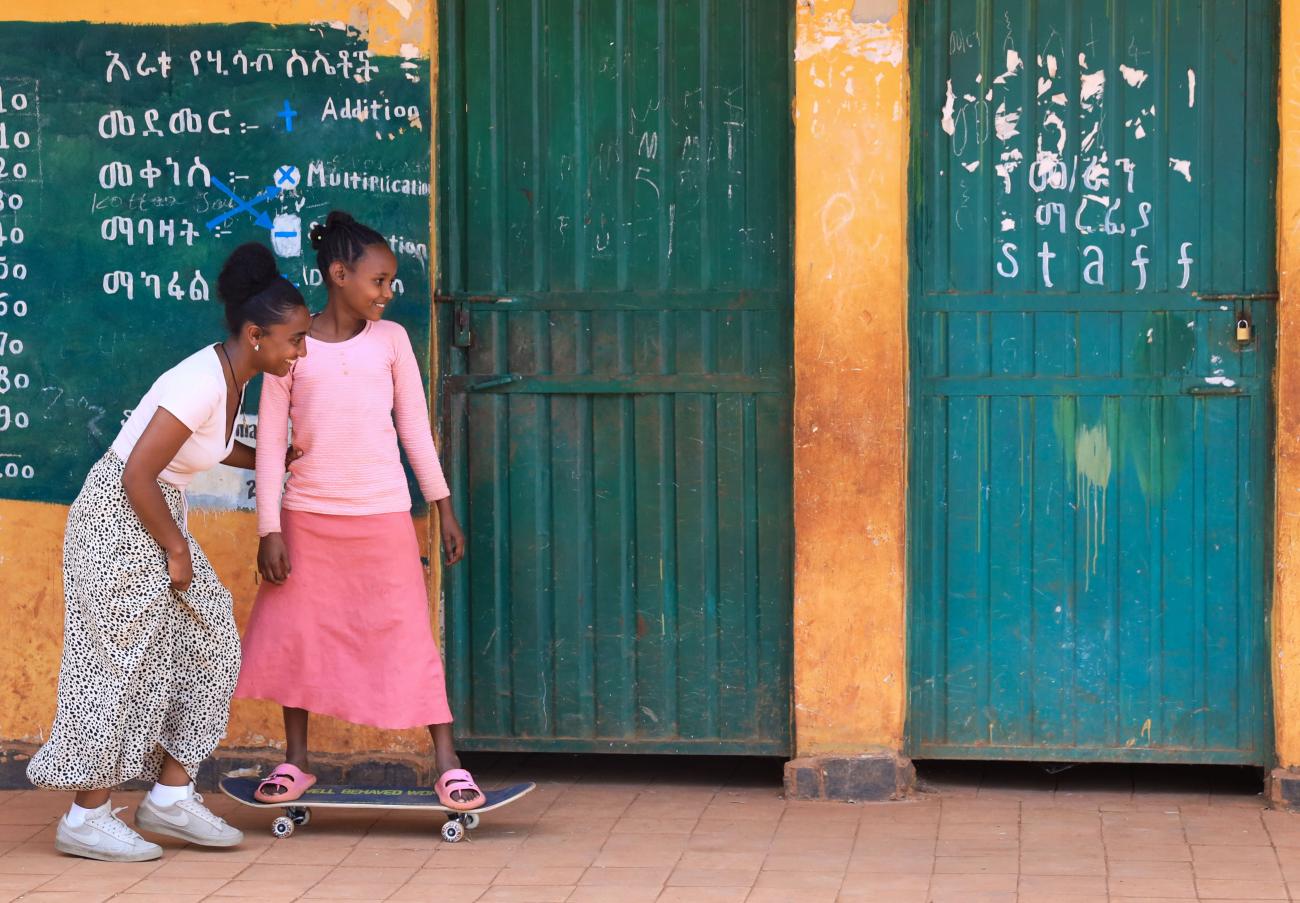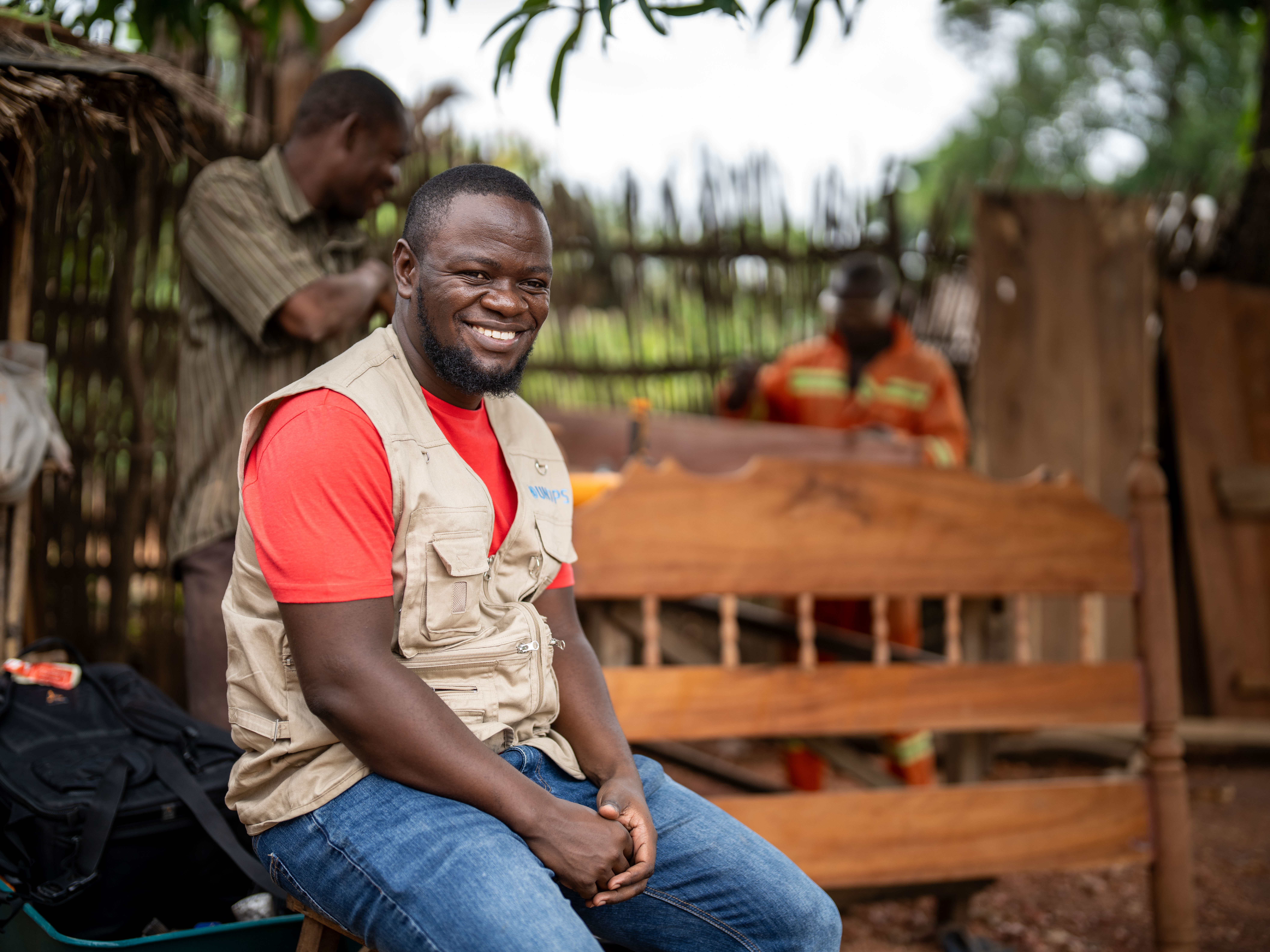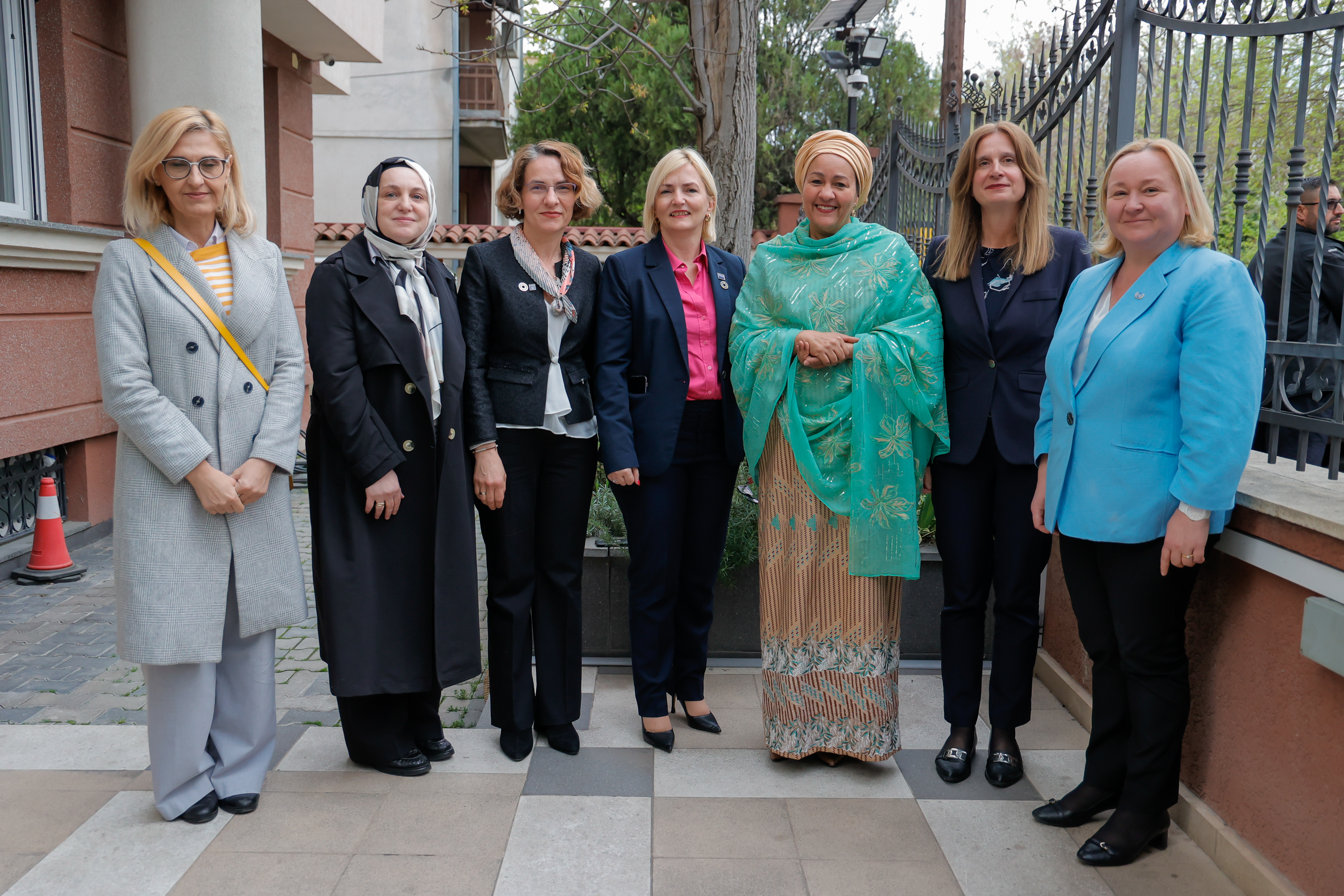Financing the Future: The Catalytic Role of Resident Coordinators

As the world approaches 2030, every action we take now will have a lasting impact on whether we achieve the Sustainable Development Goals and secure a prosperous future for all. Improving the well-being of people and planet, strengthening resilience to shocks and achieving long-term growth is only possible by accelerating sustainable development. Yet, to achieve this, countries need to proactively invest in it.
The world faces an annual financing gap of around $4 trillion to reach the SDGs, yet the pace of realising these investments has been slow. As countries grapple with rising debt, shrinking fiscal space and changing economic priorities, the gap between ground-level needs and global promises on financing is widening. In the face of growing cuts to overseas development assistance, countries must explore alternative sources of finance, from private investments to capital markets and philanthropy, while curbing illicit financial flows.
UN Resident Coordinators (RCs) have emerged as vital agents of change, driving systemic shifts to help countries identify and use mechanisms to finance their development priorities and ensure that national budgets are aligned with the SDGs.
The 2025 UNSDG Chair Report on DCO and the RC System, released recently, outlines how RCs, along with UN entities, are instrumental in unlocking financing to accelerate the SDGs, driving transformative policies, forging innovative partnerships, identifying bankable and market-ready initiatives, efficiently leveraging existing funds, and strengthening institutional capacities.
Collaborating with International Financial Institutions
RCs are bringing together diverse stakeholders —from governments, UN agencies, bilateral donors, international financial institutions (IFIs), private investors and civil society organizations— to co-create and finance development solutions tailored to countries’ needs.
In 2024, 73 per cent of UN country teams had a coordinated or joint initiative with IFIs. Under the RCs’ guidance, UN country teams worked with financial institutions to collect and analyse data to inform financing decisions made by IFIs, provide policy advice and technical assistance, and jointly deliver services for the SDGs. By focusing on building the capacity of policymakers and national stakeholders, this collaboration is helping channel financing to address the most pressing challenges in countries and driving an exchange of knowledge and good practices.

In Mozambique, the Resident Coordinator’s Office leveraged expertise from across the UN country team to support the Government’s negotiations with the International Monetary Fund (IMF) resulting in the establishment of an Extended Credit Facility. The Facility will help drive investments into priority sectors and track the tangible human impacts of such investments.

In North Macedonia, the RC worked with the UN Development Programme (UNDP), International Organization for Migration (IOM) and the UN Economic Commission for Europe (UNECE) to establish a Green Financing Facility, leveraging co-financing from European Bank for Reconstruction and Development. The facility allocated $26 million through six local financial institutions and supported 46 sub-projects with payments for small and medium enterprises and underserved households.
Engaging the Private Sector
The private sector also has a key role to play in achieving the SDGs. Private business, investments and innovation are major drivers of inclusive economic growth and job creation. When business activity and investment (both foreign and domestic) is dynamic, inclusive, risk-informed and sustainable, it can have tangible impacts for the long-term trajectory of countries.
For example, blended finance instruments can act as important incentives and mechanisms for mobilising private finance in areas that do not traditionally receive such investments.
In Thailand, the RC mobilised the local Global Compact Network, securing a $46 billion private sector pledge to drive carbon neutrality by 2050, expand protected land and marine areas and bolster human capital for the green economy. In Trinidad and Tobago, the RC supported partnerships between the UN country team and business groups, strengthening how companies managed environmental, social, and governance risks and opportunities and thereby shaping how business decisions and investments can be more responsible and sustainable.
Putting Innovative Financing into Action
RCs are also enabling the shift from fragmented funding to more coherent and innovative, blended financing models by convening diverse partners, helping to de-risk investments, and tapping into instruments like green bonds, development impact bonds, and more to drive sustainable, scalable solutions.

In Indonesia, the RC worked with the United Nations Development Programme (UNDP), the United Nations Children’s Fund (UNICEF), the United Nations Industrial Development Organization (UNIDO), and the United Nations Environment Programme (UNEP) to pioneer innovative financing solutions, unlocking over $4 billion in bonds, Islamic financing, and other investments for sustainable fisheries, waste management, social and climate financing, and urban transport.
In Kenya, the RC convened partners to develop a $10 million development impact bond for the health sector. This bond enabled the UN Population Fund (UNFPA), the World Health Organization (WHO), and the Joint United Nations Programme on HIV/AIDS to deliver over 1.5 million sessions of family planning and HIV services.
Leveraging catalytic financing
In 2024, pooled funds — both at global and country levels — continued to provide the needed space for the UN to develop scalable prototype initiatives that opened the door for leveraging greater financing. With empowered RCs at the helm, these catalytic funds are also incentivizing joint programmes across UN entities and partners and driving systemic change.
Since its inception, the Joint SDG Fund has been instrumental in this regard, transforming systems, reaching over 206 million people, and catalyzing $6.6 billion in investments. With a total $344 million outlay to date, the Fund leveraged $1.6 billion in 2024 alone from various sources, with RCs leading efforts in 90 countries across vital sectors like energy, food systems, social protection, and digitalisation.
Crucially, RCs are bringing a coherent and efficient approach ensuring that investments channeled through the UN are efficient, impactful and have a multiplier effect in leveraging finance from other sources, aligned with national priorities and channeled directly to national efforts.
Implementing the Funding Compact
Beyond this, RCs and the UN development system at large have been advocating for more sustainable, predictable and diversified funding for transformative initiatives to deliver the Sustainable Development Goals. A cornerstone of these efforts is the renewed Funding Compact between Member States and the UN development system.
Multilateralism requires strong funding. Significant changes in funding are needed, as recent funding patterns have been characterized by a decline in core resources relative to overall funding, unpredictability, and a rising share of tightly earmarked funds for specific activities.
RCs have been pivotal in operationalising this compact at the country level, co-hosting 34 country dialogues in 2024, with 51 more scheduled for 2025. These dialogues serve as tailored platforms to align investments and donor commitments with national priorities, improve funding predictability, and increase transparency in how resources are used.
The Road Ahead
Financing the SDGs in a resource-constrained world requires more than ambition—it needs trusted brokers, bold partnerships, and transformative leadership.
The upcoming 4th International Conference on Financing for Development (FfD-4) presents a momentous opportunity—to reform global financial architecture and jointly invest in solutions that deliver for people and planet. RCs will be key in demonstrating how development coordination can be the lever and force multiplier needed for development finance. By bridging global commitments with local action, this is how we turn the promise of sustainable development into a bankable reality.
Read the full 2025 Report of the Chair of the UN Sustainable Development Group on the Development Coordination Office and the RC system, which is also available in an interactive online format.













